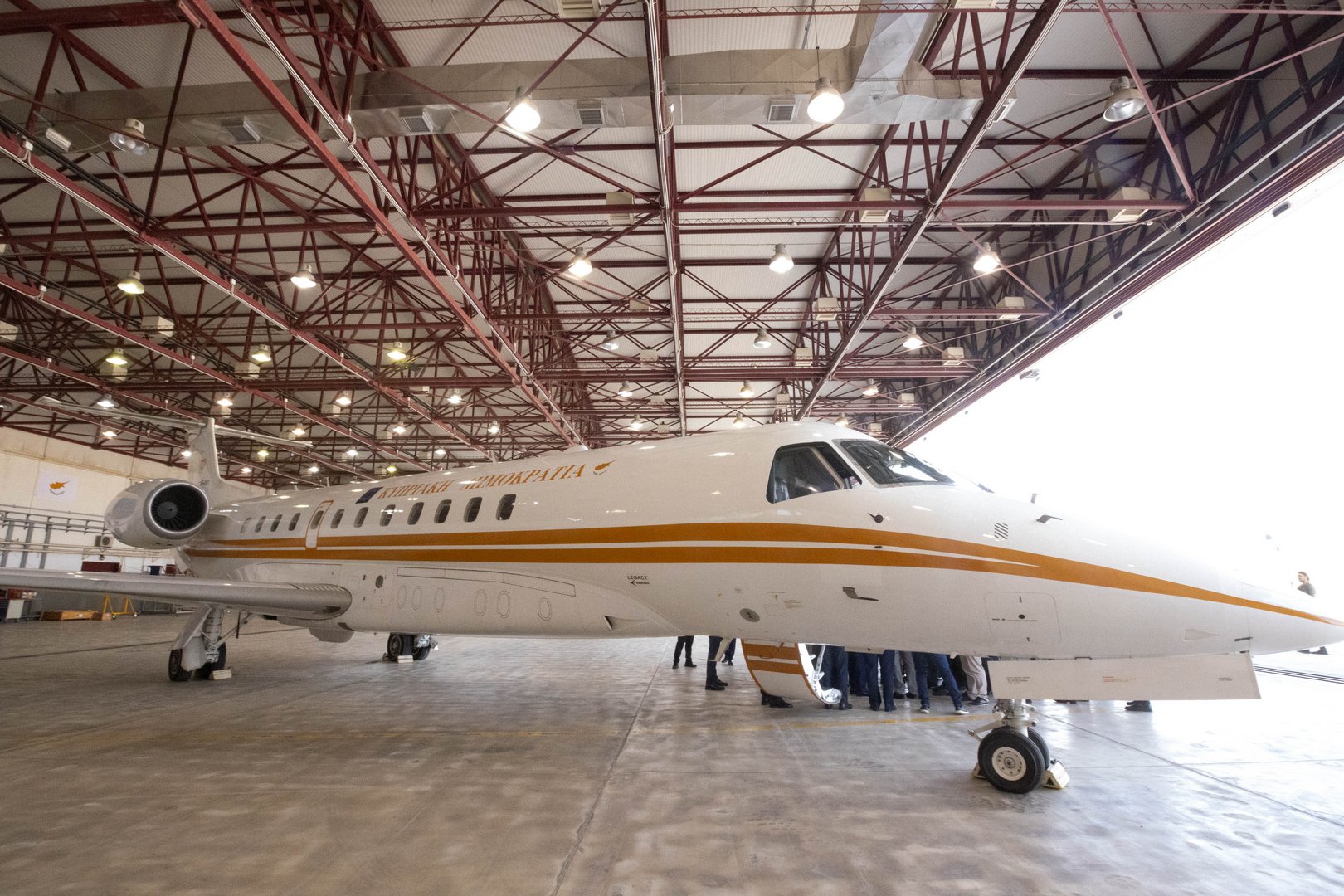The presidential private jet will be back in action at the end of the month after undergoing necessary maintenance work costing around €2 million, it emerged on Friday.
According to Politis newspaper, the presidential jet is currently undergoing maintenance at the OGMA aerospace company’s premises in Portugal, which was deemed necessary after it presented some technical issues.
It was reportedly requested that the fuselage and the electronic systems of the aircraft undergo a thorough inspection, to confirm it complies with the required level of flight safety.
The cost of maintaining and upgrading the plane will be around €2 million, which will be paid from presidential funds.
According to the newspaper, an air force officer will be present at OGMA to supervise the work and record costs for the duration of the maintenance works, which according to the contract signed are expected to take three months.
In the 2024 state budget submitted to the House for voting, a fund of €650,000 is provided to cover the expenses related to the use of the presidential aircraft.
The usage costs include the cost of ground handling for handling agents, catering services, maintenance costs, and fuel among others.
Adding the wages and allowances of the plane’s crew, usage costs come to exceed €1 million per year.
It should be noted that, for the year 2023, the relevant fund included for operating expenses was €380,000.
After maintenance the jet will be able to safely complete trips in Europe, and according to a source, the ministry of defence – which the jet belongs to – intends to proceed with a second upgrade at a later stage, to be able to safely carry out transatlantic flights, with destinations such as the USA and Australia.
Until the presidential plane is back in action, Christodoulides and his ministers are limited to the use of passenger planes.
Whenever commercial flights do not fit the presidential schedule, flight hours are purchased for the use of a private plane, with the president following the example of his predecessors.
A source told Politis that the presidential office requested quotes from tourist agencies and chose the cheapest ones for the use of a private plane, which assumes a cost of a few thousand euros at a time.
According to a report on the defence ministry made public in December by the audit office, the plane had initially belonged to the Greek Air Force and was up for sale.
Upon reviewing its technical characteristics and operational costs in order to consider its possible purchase, the ministry’s administration expressed the opinion that it would be unprofitable and former defense minister Charalambos Petridis gave instructions not to show interest in purchasing it.
Eventually, the Greek Air Force’s failure to sell the plane, paired with the Republic’s need for a government jet, ended with a mutually beneficial deal which saw the plane passed on to the Republic for free, with the condition it would take on its maintenance costs.







Click here to change your cookie preferences